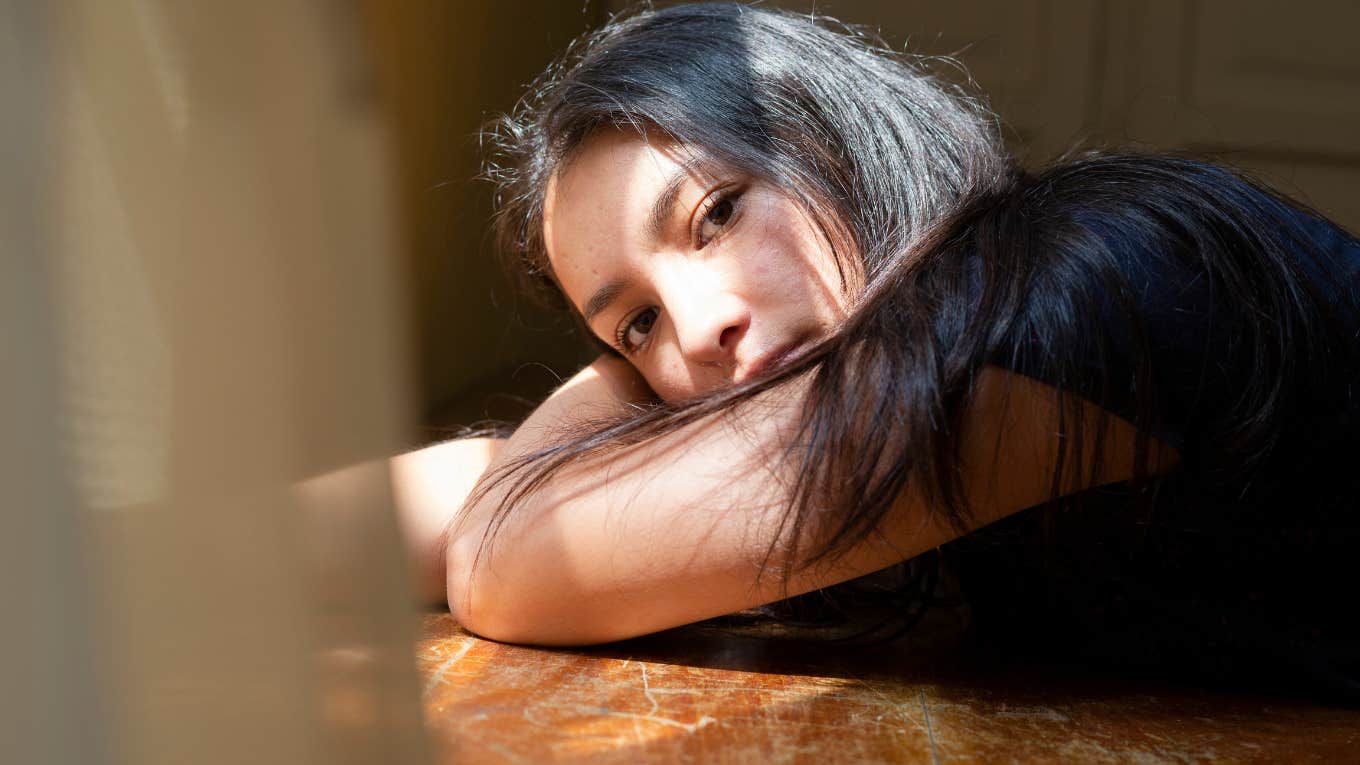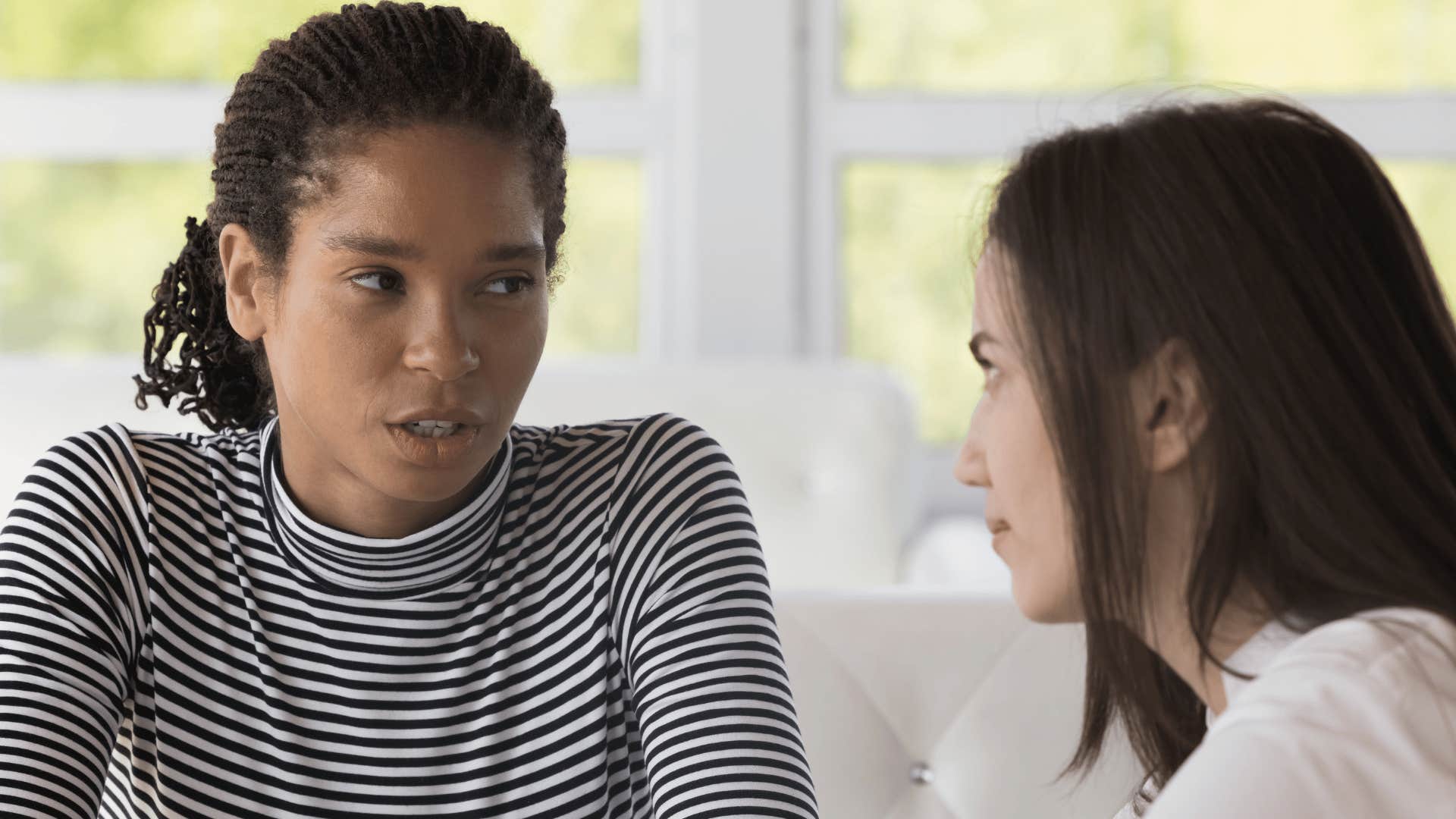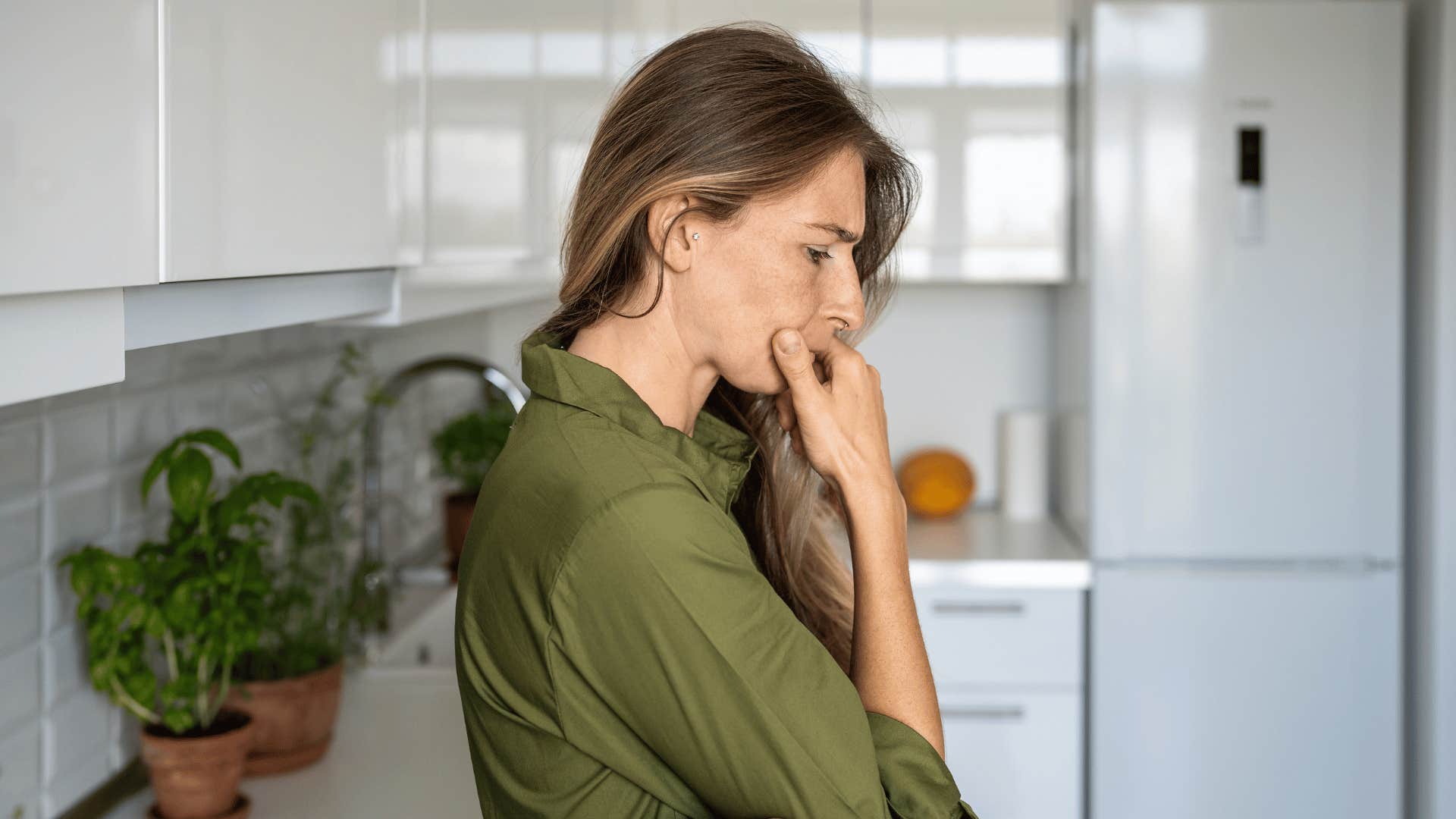9 Subtle Traits Of People Who Are Often Excluded In A Group Of Friends
The good news, every single one of these traits is something that can be changed.
 Shutterstock / Fernanda_Reyes
Shutterstock / Fernanda_Reyes Having friends is an essential part of having a healthy and happy life, but people with these subtle traits often find themselves excluded in a group of friends.
Social isolation can lead to physical and mental health struggles. The damage being lonely can cause is so extreme that in 2023, the U.S. Surgeon General Vivek Murthy issued a national advisory on the Epidemic of Loneliness and Isolation outlining the negative consequences of feeling alone. Murthy reported that not having social connections increases someone’s risk of premature death by over 60%.
It’s possible for people to feel lonely even though they have friends. Their loneliness might stem from within, especially if they have underlying emotional or psychological trauma. Yet sometimes, their attitude or actions impact the way their friends treat them. People who are often excluded in a group of friends might not know why they’re being left out, which is why it’s important to practice self-reflection and think about the ways they show up in their friendships.
Here are 9 subtle traits of people who are often excluded in a group of friends:
1. They’re sensitive to feedback
 Pheelings media | Shutterstock
Pheelings media | Shutterstock
Hearing constructive criticism isn’t always easy, as no one really likes to think about their flaws. People who are often excluded in a group of friends tend to have trouble receiving feedback about their behavior.
As in any relationship, friends are bound to feel frustrated or annoyed with each other. Being able to have open and direct conversations about the roots of those discontents is a valuable tool for keeping a friendship strong. Someone who can’t graciously accept feedback from their friends can end up being excluded from the group, especially if they don’t take steps to change how they act or start being overly critical of others as a defense mechanism.
It’s not helpful or healthy for people to tear their friends down, yet sharing gentle critique with compassion and respect with one another is how friends become closer. People who react poorly to feedback are often excluded in a group of friends, because their insecurity and lack of introspection make it difficult to be around them.
2. They’re not assertive
 Opat Suvi | Shutterstock
Opat Suvi | Shutterstock
A subtle trait of people who are often excluded in a group of friends is being unassertive. Someone who doesn’t stand up for themselves in social situations usually struggles to set healthy boundaries with the people in their lives. A lack of assertiveness means other people can push their limits and take advantage of them, even the people they’re friends with.
They might not speak up when they feel left out because they have a hard time expressing their emotions and letting themselves be vulnerable. They may accept their friends’ hurtful treatment, which often includes being pushed to the side or not considered at all.
The sad truth is that not all friends have our best interests at heart. It’s important to pay attention to the red flags your friends wave in order to know if they’re really true friends to you.
3. They’re inconsistent
 Cast Of Thousands | Shutterstock
Cast Of Thousands | Shutterstock
Everyone has quirks and incongruities that show up in their friendships, like that friend who leaves long, rambling voicemails but never texts back, or the friend who named her phone Richard and calls her car SquashBanana.
Everyone is inherently flawed, as being imperfect is part of the human experience. Yet people who are inconsistent are often excluded in a group of friends.
Their inconsistency can show up in small ways, like being chronically late, or it can present itself in more serious ways. They might always cancel plans at the last minute or never pay their fair share at a birthday celebration.
If they don't take steps to change their behavior, their pattern of being inconsistent eventually turns into being inconsiderate. Even the people who care about them feel like they can’t rely on them, so they’re often excluded in a group of friends.
4. They’re emotionally detached
 YURII MASLAK | Shutterstock
YURII MASLAK | Shutterstock
Being able to process and share feelings is an essential part of any relationship, even platonic ones. People who are emotionally detached are often excluded in a group of friends, because their inability or unwillingness to open up becomes challenging for their friends.
Being vulnerable is the key to feeling close to other people. Without vulnerability, connections between people tend to weaken, until they disappear completely. Yet many people struggle to share what they feel because they’re scared of being hurt or rejected. In some ways, emotional detachment operates as a self-fulfilling prophecy. People avoid expressing their feelings out of a fear of abandonment, yet they ultimately get abandoned because they don’t express how they feel.
While there’s nothing wrong with having surface-level friendships, cultivating deeper bonds requires people to be fully honest with each other. Someone who keeps other people at a distance is often excluded in a group of friends.
5. They give off negative energy
 Prostock-studio | Shutterstock
Prostock-studio | Shutterstock
Friends rely on each other to provide emotional support, but some people take advantage of others by using their friends as emotional dumping grounds. They vent nonstop about their boyfriend or their job or their family, to the point where talking to them turns from having a conversation to listening to a monologue.
People who give off negative energy are often excluded in a group of friends because their pessimistic attitude brings other people down. Spending time with negative people is emotionally draining, especially when all they do is complain.
People who take up everyone else’s energy tend to be toxic friends. They base relationships around who can meet their needs without offering support in return.
6. They only talk about themselves
 fizkes | Shutterstock
fizkes | Shutterstock
Being self-centered is another subtle trait of people who are often excluded in a group of friends. People who only talk about themselves usually struggle to keep close friendships, because their entitlement is so off-putting.
They make themselves the center of every conversation, as though no one else exists. If someone else is dealing with an issue and asks for advice, this type of friend uses their own experience as an example, which turns the spotlight back on themselves.
They divert attention away from other people in the friend group, but they’re too entitled to notice the friction they’re creating. As a result of their “it’s all about me” attitude, they are often excluded in a group of friends.
7. They constantly over-react
 Dima Berlin | Shutterstock
Dima Berlin | Shutterstock
People who struggle to stay emotionally regulated are often excluded in a group of friends. Their tendency to overreact creates a volatile environment for their other friends, who never know when the next emotional outburst is going to come. They might yell at servers for getting their brunch order wrong, and then refuse to leave a tip.
It’s possible that they never learned the skills they need to calm down, and so they have a low threshold for feeling agitated. Yet the more they act out emotionally without learning to self-soothe, the more they run a high risk of being excluded in their group of friends.
8. They don’t return favors
 fizkes | Shutterstock
fizkes | Shutterstock
Friendships should be based on mutual respect and trust in order to function in a healthy way. They're built on give-and-take, meaning that sometimes one friend extends themselves for another, knowing that the friend will have their back in the future.
But some people take more than they give, which can lead to them being excluded in a group of friends. People shouldn’t offer favors that are tied to the expectation that they’ll be compensated in one way or another. Yet someone who constantly takes advantage of their friends’ generosity without being generous in return is ultimately using them for their own benefit.
Not returning favors is an indication of an imbalanced friendship, and those usually don't last very long.
9. They’re competitive
 Aloha Hawaii | Shutterstock
Aloha Hawaii | Shutterstock
Comparing oneself to other people is a natural human tendency, but doing so can have negative effects, especially within friendships. Comparison often goes hand-in-hand with being competitive, which is a trait of people who are often excluded in a group of friends.
People who measure their sense of self-worth against their friend’s accomplishments are usually more insecure than they let on. They rely on external validation to boost their confidence, which can be taxing over the course of a friendship.
People who don’t celebrate when their friends achieve something great reveal their lack of empathy. Instead of being happy for their friends, they become deeply envious, which signals how little compassion they have. It isn’t easy to be around competitive or jealous people, so they’re often excluded altogether.
Alexandra Blogier is a writer on YourTango's news and entertainment team. She covers social issues, pop culture analysis and all things to do with the entertainment industry.

